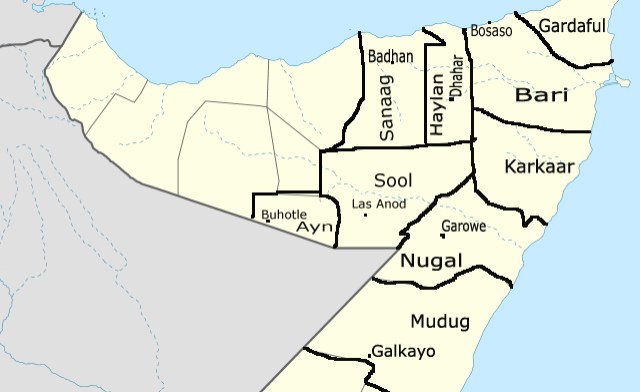Somalia: Double Visa Fees Spark Outrage At Garowe Airport
Garowe, Somalia — Passengers arriving at Garowe International Airport in Puntland over the past week have found themselves trapped in an unexpected bureaucratic tug-of-war. Despite holding valid $64 Federal Government of Somalia (FGS) electronic visas (E-Visa) obtained online, they were ordered to purchase an additional $60 “local visa” issued by Puntland authorities.
The move, effectively forcing visitors to pay twice, has sparked outrage among travelers and reignited a long-running political dispute between Puntland and Mogadishu.
On Saturday, Somali citizens with foreign passports who had already secured the newly launched federal E-Visa were stopped by Puntland’s immigration officials and told their federal permits were not valid in Garowe. Officials demanded they purchase a parallel visa directly from the Puntland administration at the airport.
Keep up with the latest headlines on WhatsApp | LinkedIn
This created long queues, confusion, and frustration for families–many of whom had saved for months to travel from the diaspora to reunite with relatives. Some passengers reportedly spent hundreds of extra dollars to secure passage through the airport.
One passenger, Mohamed Keynan, described the incident as “daylight extortion” and a violation of the Somali constitution. “When I landed, immigration demanded another $60. Families were left stranded, angry, and humiliated. This is not how you build trust in a country,” he told reporters.
- President Said Abdullahi Deni – Puntland’s leader, whose administration openly rejected the federal E-Visa rollout.
- Federal Immigration and Citizenship Agency – which officially launched the national E-Visa/ETAS system on September 1, 2025.
- Travelers & diaspora families – the direct victims of the double-charging practice.
The dispute surfaced just days after the Federal Government unveiled its long-planned E-Visa platform in Mogadishu. The system, hailed as a “historic milestone” by federal officials, was intended to streamline visa applications, enhance border security, and centralize revenue collection. However, Puntland’s rejection of the system means travelers arriving in Garowe, Puntland’s capital, are now caught between two conflicting authorities.
At the core is Somalia’s fragile federalism. The constitution grants the central government authority over immigration and borders. Yet, Puntland–often at odds with Mogadishu over revenue sharing and power distribution–has refused to recognize the federal system.
For Puntland, imposing its own visa is both a political statement and a financial strategy. By demanding a $60 local visa, Garowe asserts control over its borders while also diverting funds away from federal coffers and into Puntland’s own administration.
The immediate impact falls on travelers–particularly Somali diaspora families returning home. Instead of benefiting from the federal digital upgrade, they are penalized with duplicate costs and administrative hurdles.
“Whether Mogadishu or Garowe is right doesn’t matter to the people paying twice,” said one passenger. “This is about ordinary citizens being squeezed because of political games.”
Somalia’s new E-Visa system, modeled on global standards, was rolled out to replace outdated manual visa procedures. Federal officials argued it would enhance transparency, reduce corruption, and guarantee revenues flowed directly into the central treasury.
But Puntland’s refusal is emblematic of deeper federal tensions. Since its founding in 1998, Puntland has demanded greater autonomy within Somalia’s federal structure. The dispute over visa revenue mirrors broader disagreements on resource sharing, taxation, and political authority between Mogadishu and Garowe.
The standoff over visas at Garowe International Airport may appear bureaucratic, but it symbolizes Somalia’s unresolved power struggles. While the Federal Government pursues modernization, Puntland resists federal consolidation, leaving travelers to bear the cost of political discord.
For now, the “double visa” system effectively taxes loyalty to both governments–turning what should be a gateway home into a financial and emotional burden. Unless resolved, this dispute risks deepening the rift between Puntland and Mogadishu, while alienating the very diaspora community both sides claim to value.
Moving to Kenya Watch this







